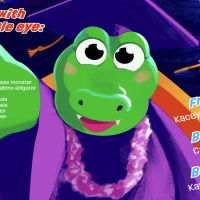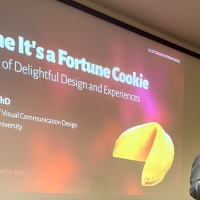Final Presentation of Students’ Projects Looking at Health and Climate Change Welcomes Two Guest Critics
On December 17th, design teams in Prof. Carvalho’s DES.410 Product Design 2 class presented their final proposals for their last project of the semester: Health and Climate Crisis. In this project, students were challenged to investigate health issues related to (re)connecting to nature or extreme situations, proposing solutions that integrate design and environmental science.
Five teams of four students each presented their design answers to problems and situations identified thorough collective and individual research, including emergency rescue in areas of wildfire, mitigating the effects of soaring temperatures in urban centers, addressing food deserts in West Oakland, encouraging greater use of public transportation, and amplifying access to greenery within the San Francisco city fabric.
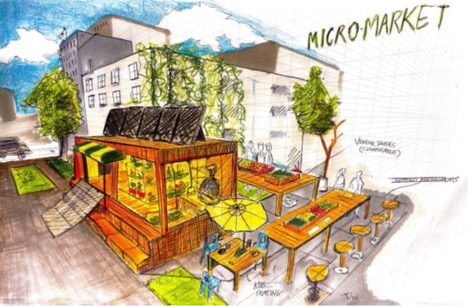
Open Market, an integrated solution to food deserts that combines infrastructure and systems design to provide fresh, healthy, affordable food to the West Oakland community. By James Vernon, Yahir Palmas-Solano, Tyler Suarez, and Rowen Conelly (DES.410, Fall 2024).
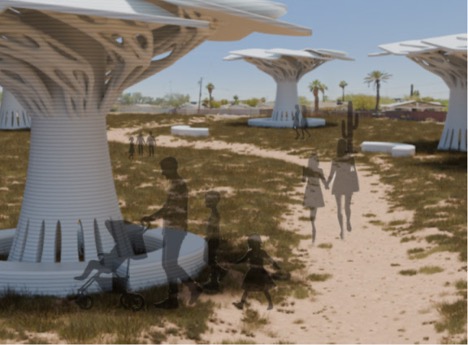
Sustainable Cooling Structures for Urban Areas, a response to provide shade and interaction to people in areas of extreme heat, using natural materials, parametric design, and digital fabrication. By Jared Brown, Myles Wrich, James Moreci, and Joshua Paz (DES.410, Fall 2024).
Guest Critics
The presentations were assessed by the class instructor and two local designers – Noopur Agarwal, and Marianna Salvatori – who provided external, expert feedback to the students.
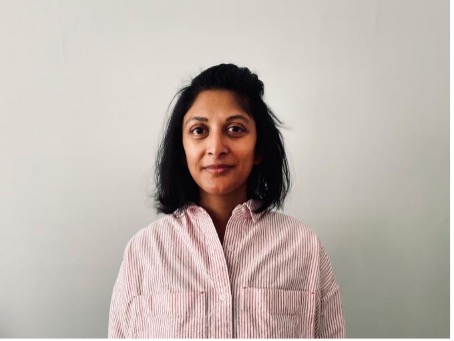
Noopur Agarwal is a practicing visual communication designer and educator dedicated to increasing critical public engagement with issues of global and local concern. Agarwal is currently serving as the Design Program Director at the University of San Francisco where she also teaches classes in Typography and Web Design. In addition, she maintains an active consultancy practice where her client list has included nonprofit, publishing, and technology organizations. Her work has amplified conversations around care systems in the U.S., nuclear disarmament, climate change, and worldwide disparities in sanitation. In all of these endeavors, she draws upon her own biography as a second generation Indian-American woman exploring themes of identity and privilege. Currently she is working on a documentary film about the life of Corita Kent entitled, You Should Never Blink, as a creative advisor and designer.
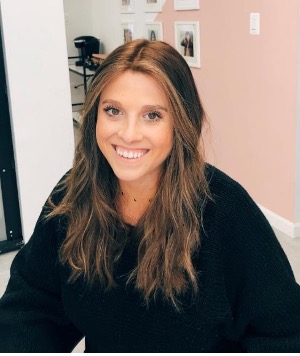
Marianna Salvatori is the Design Director for The Better Lab, an academic research lab at UCSF that uses human-centered design to study and fix healthcare problems. Marianna received her B.S. in Engineering, Product Design from Stanford University. She spent years studying and practicing human centered design skills at Stanford’s Design School. At The Better Lab, she has used HCD to work on projects such as redesigning the discharge regimen for patients with hand infections, improving the patient navigation process for a UCSF Oncology clinic, and developing a mobile app to connect victims of violence to UCSF caseworkers.
